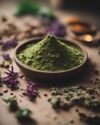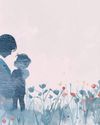
Our quest for happiness
Contentment, happiness, well-being … these have been considered hallmarks of a good life for people from all cultures since time immemorial. Yet, in today’s uncertain world, they seem to elude us more than ever before. When I remember my grandparents, who were simple village folk from Gujarat in India, they had very little in the way of material possessions, and they lived through tough times at the end of the British rule and India’s independence, but they had a higher level of contentment than most wealthy people living luxurious lives today. In my memories I still see their simple life, their smiles, their way of being with family members, and the fundamental principles that defined their lifestyle. These principles brought them a lot of stability, and they are the lifestyle habits that we are discussing in this series.
I hear the same stories from my Western friends, who tell me about their grandparents and parents living through the First World War, the Great Depression, and the Second World War, who also seemed to have a higher level of contentment than many people today. They made do with very little when resources were scarce, they appreciated so many of the very ordinary things in daily life, like wartime rations, a beautiful sunrise, a homemade Christmas present, and letters from loved ones at home or on the battlefield. They made something of their lives despite the hardships they endured. An amazing and inspiring example is the 1997 film, Life is Beautiful, about a Jewish-Italian bookstore owner whose family was captured by the Nazis and interned, and who managed to shield his young son from the horrors of concentration camp living with humor and hope.
This story is from the August 2021 edition of Heartfulness eMagazine.
Start your 7-day Magzter GOLD free trial to access thousands of curated premium stories, and 9,000+ magazines and newspapers.
Already a subscriber ? Sign In
This story is from the August 2021 edition of Heartfulness eMagazine.
Start your 7-day Magzter GOLD free trial to access thousands of curated premium stories, and 9,000+ magazines and newspapers.
Already a subscriber? Sign In

A Flower from THE HEAVENS
November 14 is Children's Day. This year, SARA BUBBER brings to you a world of forests, magical flowers, festivals, and some animals you may have never seen.

Meeting Phenomenal Women
The author, CHITRA BANERJEE DIVAKARUNI, is interviewed here by TARA KHANDELWAL and MICHELLE D'COSTA about her books on mythology, like The Palace of Illusions, which is a retelling of the Mahabharata from Draupadi's point of view, and The Forest of Enchantments, which is a retelling of the Ramayana, from the eyes of Sita. And there's The Last Queen, which is about Rani Jindan's life.

HERBAL TOOTH POWDERS: Rediscovering Ayurveda's Natural Secrets
SRAVAN BANDA presents a natural herbal tooth powder, offering a holistic approach to oral hygiene, harnessing the power of medicinal herbs.

The Dance of Light and Shadow Lessons from the Dolomites
ALAIN DESVIGNE explores the Dolomites, listed as a UNESCO World Heritage Site in 2009.

FINDING OUR WAY
A Polynesian Explorer's Journey of Discovery

The First Imprint: Understanding PTSD
CHRISTIANNA DEICHMANN is the Director of Education at the Association for Pre and Perinatal Psychology and Health (APPPAH), where she educates both professionals and parents on fostering the most nurturing environments for welcoming new life into the world.

The Tipping Point
In this final conversation of the series, J. FREDERICK ARMENT continues to talk with CHRISTINE JONES about promoting peace in the world.

UNLOCK YOUR POTENTIAL
Take The Brighter Minds Path To Cognitive Development

The Intrinsic Goodness of the Heart
DAAJI shares some thoughts on heartfelt acceptance and all it has to offer. He says, \"It is the heart's intrinsic goodness that allows us to accept everything as part of us.

How Does Fear Affect Our Roles as Mothers? - Neelam Shivhare explores some of the great ancient texts of India on motherhood, compares the behavior of Kaikayi and Yashoda
Neelam Shivhare explores some of the great ancient texts of India on motherhood, compares the behavior of Kaikayi and Yashoda, and realizes the importance of removing fear from our hearts in order to nurture our children.For young women like myself, who are future mothers, I trust we are on the path of becoming selfaware and brutally honest with ourselves. We are creative beings, never forgetting the gifts with which we have been bestowed— the love and tenderness, natural instincts, and intuition to feel the right path. It all lies in the mysterious meanderings of the heart. Are we really listening to our hearts, or confusing the bombarding information on social media with reality?